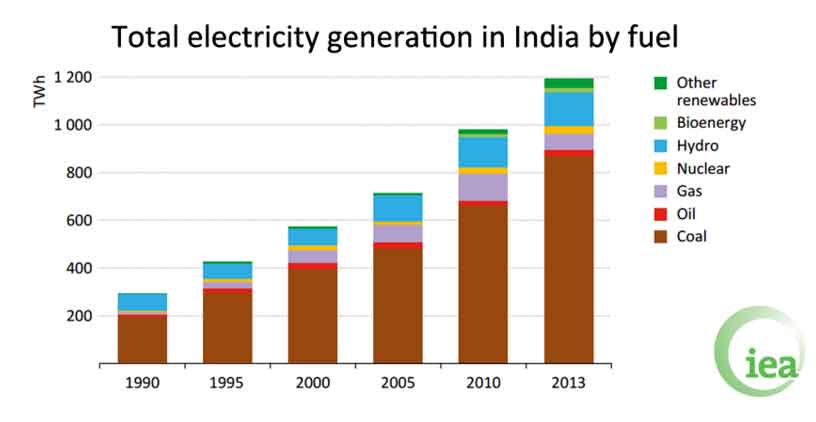Paris, India And Coal
By John Scales Avery
28 November, 2015
Countercurrents.org

The MIT Technology Review recently published an important article entitled “India's Energy Crisis”.
http://www.technologyreview.com/featuredstory/542091/indias-energy-crisis/
The article makes alarming reading in view of the world's urgent need to make a very rapid transition from fossil fuels to 100% renewable energy. We must make this change quickly in order to avoid a tipping point beyond which catastrophic climate change will be unavoidable.
https://www.youtube.com/watch?v=2bRrg96UtMc
https://www.youtube.com/watch?v=MVwmi7HCmSI
https://www.youtube.com/watch?v=AjZaFjXfLec
https://www.youtube.com/watch?v=W_aMbM20mbg
https://www.youtube.com/watch?v=MVwmi7HCmSI
The MIT article states that “Since he took power in May, 2014, Prime Minister Narendra Modi has made universal access to electricity a key part of his administration's ambitions. At the same time, he has pledged to help lead international efforts to limit climate change. Among other plans, he has promised to increase India's total power generating capacity to 175 gigawatts, including 100 gigawatts of solar, by 2022. (That's about the total power generation of Germany.)”
However India plans to expand its industrial economy, and to do this, it is planning to very much increase its domestic production and use of coal. The MIT article continues, pointing out that
“Such growth would easily swamp efforts elsewhere in the world to curtail carbon emissions, dooming any chance to head off the dire effects of global climate change. (Overall, the world will need to reduce its current annual emissions of 40 billion tons by 40 to 70 percent between now and 2050.) By 2050, India will have roughly 20 percent of the world’s population. If those people rely heavily on fossil fuels such as coal to expand the economy and raise their living standards to the level people in the rich world have enjoyed for the last 50 years, the result will be a climate catastrophe regardless of anything the United States or even China does to decrease its emissions. Reversing these trends will require radical transformations in two main areas: how India produces electricity, and how it distributes it.”
The Indian Minister of Power, Piyush Goyal, is an enthusiatic supporter of renewable energy expansion, but he also supports, with equal enthusiasm, the large-scale expansion of domestic coal production in India.
Meanwhile, the consequences of global warming are being felt by the people of India. For example, last May, a heat wave killed over 1,400 people and melted asphalt streets.
https://www.rt.com/news/262641-india-heat-wave-killed/
Have India's economic planners really thought about the long-term future? Have they considered the fact that drastic climate change could make India completely uninhabitable?
John Avery received a B.Sc. in theoretical physics from MIT and an M.Sc. from the University of Chicago. He later studied theoretical chemistry at the University of London, and was awarded a Ph.D. there in 1965. He is now Lektor Emeritus, Associate Professor, at the Department of Chemistry, University of Copenhagen. Fellowships, memberships in societies: Since 1990 he has been the Contact Person in Denmark for Pugwash Conferences on Science and World Affairs. In 1995, this group received the Nobel Peace Prize for their efforts. He was the Member of the Danish Peace Commission of 1998. Technical Advisor, World Health Organization, Regional Office for Europe (1988- 1997). Chairman of the Danish Peace Academy, April 2004. http://www.fredsakademiet.dk/ordbog/aord/a220.htm. He can be reached at [email protected]

